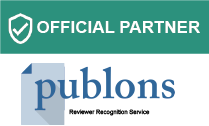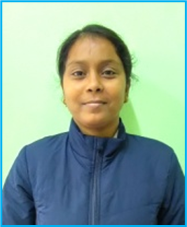Abstract
In the present study, the researchers were mainly interested in investigating the impact of PE curriculum on the academic achievements of the Higher Secondary (HS) level (10+2) students belonging to two different educational boards in India i.e., West Bengal Council of Higher Secondary Education (WBCHSE) and Central Board of Secondary Education (CBSE). On the basis of simple randomization, one hundred eighty (N=180) HS level boys were selected from four schools (two schools from each board) as participants for the present study. Among 180 students, 120 students [60 from each educational board, WBCHSE acted as experimental Group-I (EGWB–I); CBSE acted as experimental Group-II (EGCB–II)] were so selected that they had PE as a compulsory subject and rest, 60 students [30 from each educational board, simultaneously acted as Control Group (CGWB+CB)] had either computer science or painting as a compulsory subject in place of PE. The students of EGWB–I & EGCB–II underwent two different PE curriculums as training interventions over an academic year (11 months). But the CGWB+CB did not receive any PE curriculum as a training intervention. The student’s academic achievement was measured by obtained marks in two common subjects (Bengali and English) for both boards. It was standardized through T-score and finally, composite T-score were calculated for all the subjects to draw statistical inference on academic achievement. Statistical inference on academic achievement among the groups in baseline and post-test were drawn through ANCOVA followed by Tukey's LSD post-hoc test. Significance was tested at p<.05 level. Both EGWB–I & EGCB–II showed a significant difference compared to the CGWB+CB in academic achievement. But no significant difference was observed between EGWB–I & EGCB–II. The academic achievement of the students having PE as a subject improved significantly compared to the students having no PE as a compulsory subject in both boards. But the PE curriculum in both boards was found to be equally effective for developing students' academic achievement.
Keywords
Educational Curriculum, Board of Education, WBCHSE, CBSE, PE Curriculum, Cognitive development,References
- T. Ozoliņš J (John), S.A. Stolz, The Place of Physical Education and Sport in Education. Educational Philosophy and Theory, 45(9) (2013) 887–91.
- J.W. Wiles, J. Bondi, Curriculum development: A guide to practice. Prentice Hall; 2011.
- J. Wiles, Leading curriculum development. Corwin press; 2008.
- A. Anon, Syllabus of Class XI and XII (Bengali Medium) [Internet]. WBCHSE; 2016. Available from: https://wbxpress.com/syllabus-hs-arts-commerce-science-wbchse/
- A. Ward, W. Stoker, M. Murray-Ward, Achievement and Ability Tests – Definition of the Domain Educational Measurement, 1996.
- R.J. Shephard, Curricular physical activity and academic performance, Pediatric exercise science, 9(2) (1997) 113–26.
- J.F. Sallis, T.L. McKenzie, B. Kolody, M. Lewis, S. Marshall, P. Rosengard, Effects of Health-Related Physical Education on Academic Achievement: Project SPARK, Research Quarterly for Exercise and Sport, 70(2) (1999) 127–34.
- D.N. Ardoy, J.M. Fernández-Rodríguez, D. Jiménez-Pavón, R. Castillo, J.R. Ruiz, F.B. Ortega, A Physical Education trial improves adolescents’ cognitive performance and academic achievement: the EDUFIT study, Scandinavian Journal of Medicine & Science in Sports, 24(1) (2014) e52–61.
- F. Trudeau, R.J. Shephard, Physical education, school physical activity, school sports and academic performance, International Journal of Behavioral Nutrition and Physical Activity, 5(1) (2008) 10.
- V. Senthil, Does the more internet usage provide good academic grades? Education and Information Technologies, 23(6) (2018) 2901–10.
- J.A. Reed, G. Einstein, E. Hahn, S.P. Hooker, V.P. Gross, J. Kravitz, Examining the impact of integrating physical activity on fluid intelligence and academic performance in an elementary school setting: a preliminary investigation, Journal of Physical Activity and Health, 7(3) (2010) 343–51.
- B.A. Sibley, J.L. Etnier, The Relationship between Physical Activity and Cognition in Children: A Meta-Analysis, Pediatric Exercise Science, 15(3) (2003) 243–56.
- P.D. Tomporowski, C.L. Davis, P.H. Miller, J.A. Naglieri, Exercise and Children’s Intelligence, Cognition, and Academic Achievement. Educational Psychology Review, 20(2) (2008) 111–31.
- G.K. Resaland et al. Effects of physical activity on schoolchildren’s academic performance, Journal of strength and conditioning research / National Strength & Conditioning Association, 91 (2016) 322–8.
- E. Haapala, Physical activity, academic performance and cognition in children and adolescents. A systematic review, Baltic Journal of health and physical activity, 4(1) (2012) 53.
- E.K. Howie, R.R. Pate, Physical activity and academic achievement in children: A historical perspective, Journal of Sport and Health Science, 1(3) (2012) 160–169.
- A. Marques, F.R.G. Corrales, J. Martins, R. Catunda, H. Sarmento, Association between physical education, school-based physical activity, and academic performance: a systematic review, Retos: nuevas tendencias en educación física, deporte y recreación. (31) (2017) 316–20.
- J.N. Booth, S.D. Leary, C. Joinson, A.R. Ness, P.D. Tomporowski, J.M. Boyle, J.J. Reilly,Associations between objectively measured physical activity and academic attainment in adolescents from a UK cohort, British Journal of Sports Medicine, 48(3) (2014) 265.
- S.A. Carlson, J.E. Fulton, S.M. Lee, L.M. Maynard, D.R. Brown, H.W. Kohl, W.H. Dietz, Physical Education and Academic Achievement in Elementary School: Data From the Early Childhood Longitudinal Study. American Journal of Public Health, 98(4) (2008) 721–727.
- A.J. Daly-Smith, S. Zwolinsky, J. McKenna, P.D. Tomporowski, M.A. Defeyter, A. Manley, Systematic review of acute physically active learning and classroom movement breaks on children’s physical activity, cognition, academic performance and classroom behaviour: understanding critical design features, BMJ Open Sport & Exercise Medicine, 4(1) (2018) e000341.
- C. Lang, A.K. Feldmeth, S. Brand, E. Holsboer-Trachsler, U. Pühse, M. Gerber, Stress Management in Physical Education Class: An Experiential Approach To Improve Coping Skills and Reduce Stress Perceptions in Adolescents, Journal of Teaching in Physical Education, 35(2) (2016) 149–58.
- M.J. Mullender‐Wijnsma, E. Hartman, J.W. de Greeff, R.J. Bosker, S. Doolaard, C. Visscher, Improving academic performance of school‐age children by physical activity in the classroom: 1‐year program evaluation, Journal of School Health, 85(6) (2015) 365–371.
- R. Puett, J. Teas, V. España-Romero, E.G. Artero, Lee D chul, M. Baruth, X, Sui, J, Montresor-López, S.N. Blair, Physical activity: does environment make a difference for tension, stress, emotional outlook, and perceptions of health status? Journal of Physical Activity and Health, 11(8) (2014) 1503–1511.
- A.K. Shannonhouse, The effects of physical activity on academic achievement in kindergarten aged children. 2012. http://d-scholarship.pitt.edu/13520/1/shannonhouse_8-9-122.pdf
- H. Tripathi, Effectiveness of blended learning using lms-edmodo in teaching economics at higher secondary level, International Journal of Indian Psychology, (3) (2016) 74–83.
- D.P. Coe, J.M. Pivarnik, C.J. Womack, M.J. Reeves, R.M. Malina, Effect of physical education and activity levels on academic achievement in children. Medicine and Science in Sports and Exercise, 8(8) (2006) 1515–9.
- S. Georgakis, K. Hooper, Parent/Carer values and attitudes towards physical education and school sport in Australian Government primary schools, Journal of Physical Education and Sport, 21(6) (2021) 3128–34.
- L. Concepcion, M. Nales-Torres, A. Rodriguez-Zubiaurre, The Relationship between Videogame Use, Deviant Behavior, and Academic Achievement among a Nationally Representative Sample of High School Seniors in the United States, American Journal of Educational Research, 4(16):(2016) 1157–1163.
- C. Lang, A.K. Feldmeth, S. Brand, E. Holsboer-Trachsler, U. Pühse, M. Gerber, Effects of a physical education-based coping training on adolescents’ coping skills, stress perceptions and quality of sleep, Physical Education and Sport Pedagogy, 22(3) (2017) 213–230.
- N. Mischenko, M. Kolokoltsev, E. Romanova, E. Tsapov, S. Ustselemov, E. Tsaytler, et al. Pilates program use for high school girls’ additional physical education, Journal of Physical Education and Sport, 20(6) (2020) 3485–3490.
- B.H. Mimrot, A Study of Academic Achievement Relation to Home Environment of Secondary School Students, Brain research Reviews, 4(1) (2016) 30–40.
- C.N. Rasberry, S.M. Lee, L. Robin, B. Laris, L.A. Russell, K.K. Coyle, et al. The association between school-based physical activity, including physical education, and academic performance: a systematic review of the literature, Preventive Medicine, 52 (2011) S10–20.
- H. Erwin, A. Fedewa, S. Ahn, Student academic performance outcomes of a classroom physical activity ıntervention: A pilot study, International Electronic Journal of Elementary Education, 4(3) (2012) 473–487.
- A.S. Singh, E. Saliasi, V. van den Berg, L. Uijtdewilligen, R.H.M. de Groot, J. Jolles, et al. Effects of physical activity interventions on cognitive and academic performance in children and adolescents: a novel combination of a systematic review and recommendations from an expert panel, British Journal of Sports Medicine, 2019 May 1;53(10) (2019) 640-647.
- S. Bhowmick, S.S. Ghosh, Impact of physical education curriculum on cardiovascular endurance of higher secondary school students, Vidyabharati International Interdisciplinary Research Journal, International Virtual Conference on Innovation in Multidisciplinary Studies - IVCIMS 2021 August 04-05; Special Issue (part-III) 197-201. https://www.viirj.org/specialissues/SP12/SP12.html
- S.S. Ghosh, Relationship of Body Mass Index with Cardiorespiratory Fitness in Collegiate Females of West Bengal, International Journal of Sports and Physical Education, 5(3) (2019) 19–22.
 |
|


 Articles
Articles




